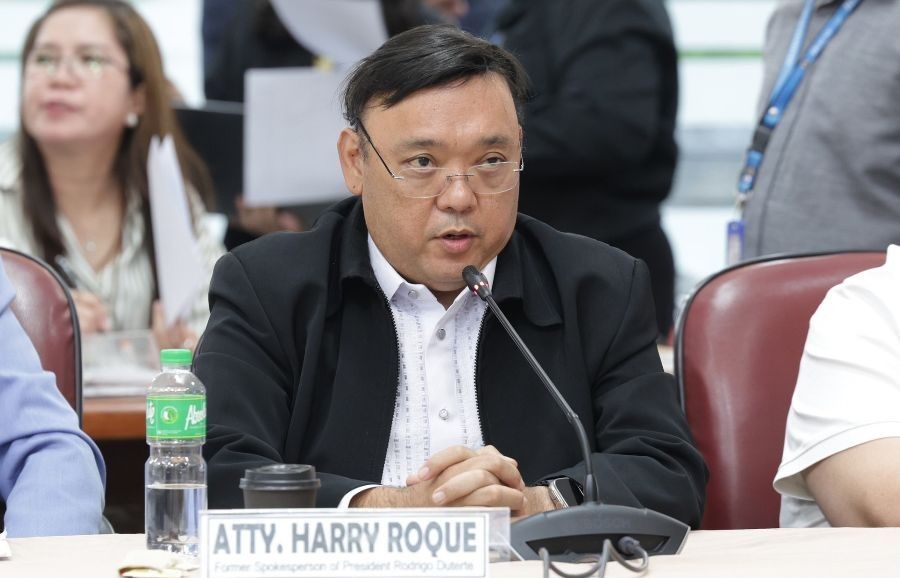
Upgrade to High-Speed Internet for only ₱1499/month!
Enjoy up to 100 Mbps fiber broadband, perfect for browsing, streaming, and gaming.
Visit Suniway.ph to learn
Michael Punongbayan - The Philippine Star
March 29, 2025 | 12:00am
U.S. Army Soldiers assigned to Battery B, 3rd Battalion, 7th Field Artillery Regiment, 25th Division Artillery, 25th Infantry Division, load a M119A3 Light Towed Howitzer 105mm during a combined arms live-fire exercise during Balikatan 2022 on Colonel Ernesto Rabina Air Base, Tarlac province, Philippines, March 31, 2022. Balikatan is an annual exercise between the Armed Forces of the Philippines and U.S. Military designed to strengthen bilateral interoperability, capabilities, trust, and cooperation built over decades of shared experiences. Balikatan 22 is the 37th and largest-ever iteration of the exercise and coincides with the 75th anniversary of the U.S.-Philippine security cooperation and a shared commitment to advancing peace and stability in the Indo-Pacific region.
U.S.Army photo by Spc. Darbi Colson / 28th Public Affairs Detachmen
MANILA, Philippines — The United States military will be deploying its Navy-Marine Expeditionary Ship Interdiction System or NMESIS anti-ship missile system for next month’s Balikatan exercises, US Secretary of Defense Pete Hegseth said yesterday.
He said he and Defense Secretary Gilbert Teodoro Jr. “agreed on the next steps to reestablish deterrence in the Indo-Pacific region… These efforts build on an ongoing $500-million commitment in foreign military financing and other security assistance to support the Philippines’ military modernization.”
Speaking to reporters at a press briefing in Camp Aguinaldo, Hegseth again gave assurance of America’s commitment to stand with the Philippines amid China’s aggression in the Indo-Pacific, and that the US is now “doubling down” on its partnership with the Philippines.
“We do not seek war, we seek peace. But those who long for peace must prepare for war and we stand united shoulder-to-shoulder,” he said.
Stressing the importance of peace through strength, he declared that “our ironclad alliance has never been stronger” and that after very productive meetings and discussions in his first official visit to Manila, the partnership will not just continue but will accelerate.
“First, we agreed that the US will deploy additional advance capabilities to the Philippines. This includes using the NMESIS anti-ship missile system and highly capable unmanned surface vehicles in Exercise Balikatan this April,” Hegseth said.
“These systems will enable US forces and the Armed Forces of the Philippines (AFP) to train together on using advanced capabilities to defend the Philippines’ sovereignty,” he added.
The deployment of the NMESIS comes as China continues to protest how the Typhon mid-range missile system of the US remains in the Philippines after being used during last year’s Balikatan and with the US military announcing plans to deploy another battery of the same, possibly in the next weeks or months.
The two defense chiefs also agreed to enhance interoperability for high-end operations, which include bilateral special operation forces training in Batanes.
Hegseth said he and Teodoro agreed to prioritize bilateral defense industrial cooperation such as co-producing unmanned systems and increasing combined logistics support.
He explained that systems and big technology need logistics support to operate and advance, which is why such initiatives “will help us share burdens and promote a more comprehensive partnership. We intend for these efforts to boost both of our economies and strengthen supply chain resilience.
“And finally, we agreed to launch a bilateral cyber campaign. We’re going to work together to reduce cyber vulnerabilities across our alliance and increasing cybersecurity will allow even more advance operational cooperation,” he said.
“The challenges we face require that kind of team effort… Those aspects are just the beginning. I can assure you and I can assure all those watching, this is just the beginning of what will continue to be an incredibly fruitful alliance,” Hegseth said.
To further strengthen deterrence in the Indo-Pacific, he said “we encourage our other partners and allies in the region to step up their efforts and their cooperation to increase defense capabilities.”
“We have already set a robust agenda for the next few years. It reflects the strength, as I said, of our ironclad alliance, particularly in the face of communist China’s aggression in the region,” Hegseth said.
“And our partnership demonstrates our commitment to peace and security in the Indo-Pacific. As our President – who sends his greetings – President Donald Trump talks about often and demonstrates, we will achieve peace through strength,” he stated.

 2 months ago
17
2 months ago
17



